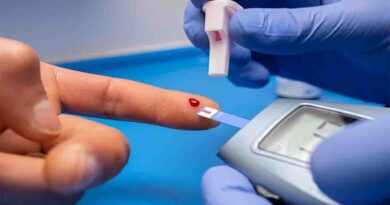Prenatal Checkups and Benefits
Prenatal checkups play a pivotal role in ensuring a healthy and successful pregnancy for expectant mothers. These regular medical examinations are essential for monitoring the well-being of both the mother and the developing baby throughout the pregnancy journey. By visiting their healthcare providers at specific intervals, pregnant women can receive comprehensive care, guidance, and support to optimize their health and reduce the risk of complications. In this article, we will delve into the importance of prenatal checkups, the various benefits they offer, and how they contribute to a positive pregnancy experience.
The Importance of Prenatal Checkups

Prenatal checkups are a fundamental aspect of prenatal care, aimed at safeguarding the health of both the expectant mother and her unborn child. Regular visits to the healthcare provider during pregnancy allow for early detection and timely management of any potential health issues, minimizing risks and promoting a healthier pregnancy.
Benefits of Prenatal Checkups
Monitoring the Pregnancy Progress
Prenatal checkups play a vital role in monitoring the pregnancy progress, ensuring the health and well-being of both the expectant mother and the developing baby. These regular medical examinations allow healthcare providers to closely track various indicators of a healthy pregnancy, providing valuable insights into the baby’s growth and the mother’s overall health.
During these checkups, healthcare professionals measure and record factors such as weight gain, fundal height, and blood pressure, which help assess the baby’s growth rate and identify any potential concerns. Additionally, fetal heartbeat monitoring using a handheld ultrasound device known as a “Doppler” ensures the baby’s heart is beating within a healthy range.
By diligently monitoring the pregnancy progress through regular parental checkups, healthcare providers can promptly address any emerging issues, offer guidance on maintaining a healthy lifestyle, and ensure a smooth and successful pregnancy journey for both the mother and the baby.
Identifying and Managing Risk Factors
Prenatal checkups play a vital role in identifying and managing risk factors that could potentially impact the health of both the mother and the baby during pregnancy. These regular medical examinations provide healthcare professionals with valuable information to assess the overall well-being of the expectant mother and monitor the baby’s development.
During parental checkups, healthcare providers assess various risk factors that may include gestational diabetes, preeclampsia, genetic abnormalities, and other potential complications. Through advanced screening tests like multiple marker screening, AFP tests, and nuchal translucency screening, healthcare professionals can detect potential birth defects and genetic abnormalities early on.
Early identification of risk factors allows healthcare providers to provide timely interventions and appropriate care to mitigate potential complications. This proactive approach helps ensure the best possible outcome for both the mother and the baby, promoting a healthier and safer pregnancy.
By attending regular prenatal checkups, expectant mothers can work closely with their healthcare providers to monitor their health and address any identified risk factors promptly. This collaborative effort between the expectant mother and the healthcare team is instrumental in optimizing the overall health and well-being of both the mother and the developing baby throughout the pregnancy journey.
Early Detection of Birth Defects and Abnormalities
Prenatal checkups are a vital component of prenatal care, providing expectant parents with the opportunity to monitor the health and development of their unborn baby. One of the significant benefits of these regular medical examinations is the early detection of potential birth defects and abnormalities.
During prenatal checkups, healthcare providers employ various screening tests to assess the baby’s risk for certain conditions. Tests like multiple marker screening, alpha-fetoprotein (AFP) tests, and nuchal translucency screening help identify markers that may indicate the presence of birth defects.
Early detection allows parents and healthcare providers to plan for specialized care, seek expert consultations, and prepare emotionally and practically for any challenges that may arise. While it is essential to remember that not all abnormalities can be detected prenatally, regular prenatal checkups significantly increase the chances of identifying potential issues early on, thus enabling better management and support for both the baby and the expectant parents.
Supporting the Emotional Well-being of the mother
Establishing a Trusted Relationship
Prenatal checkups provide an excellent opportunity for expectant mothers to establish a strong and trusted relationship with their healthcare providers. Building a rapport with the doctor allows the mother to feel comfortable expressing her emotions, concerns, and fears related to pregnancy. This open communication fosters a supportive environment where the mother’s emotional well-being is given the utmost importance.
Addressing Pregnancy-related Anxiety and Stress
Pregnancy can be an emotionally turbulent time for many women, leading to anxiety and stress. During prenatal checkups, healthcare providers actively inquire about the mother’s emotional state, providing a safe space to discuss any apprehensions she may have. Addressing these feelings and offering coping strategies can significantly alleviate the emotional burden, allowing the mother to focus on the joy and excitement of pregnancy.
Educating about Pregnancy Hormones
Hormonal fluctuations during pregnancy can have a profound impact on a woman’s emotions. Prenatal checkups offer an opportunity for healthcare providers to educate mothers about these hormonal changes, helping them understand that mood swings and emotional highs and lows are a normal part of the pregnancy journey. This reassurance can lessen any feelings of guilt or confusion the mother may experience.
Encouraging Emotional Support Networks
Prenatal checkups also serve as a platform to encourage the importance of emotional support networks. Healthcare providers may recommend joining support groups or seeking the companionship of friends and family during this time. Having a strong support system can help the mother feel cared for, understood, and less isolated in her emotional experiences.
Identifying Signs of Depression or Anxiety
Prenatal checkups play a critical role in early detection of mental health issues like depression or anxiety. Healthcare providers are trained to recognize signs of distress and can provide appropriate referrals for counseling or therapy when necessary. Addressing mental health concerns promptly ensures that the mother receives the support she needs to navigate her emotional well-being effectively.
prenatal checkups go beyond physical health assessments; they are equally crucial for supporting the emotional well-being of expectant mothers. By fostering open communication, providing education, and addressing emotional concerns, healthcare providers play an integral role in easing the emotional journey of pregnancy. A supportive and caring approach during these checkups can have a positive impact on the mother’s overall well-being and enhance the overall experience of pregnancy.
Providing Nutritional Guidance
Proper nutrition is of paramount importance during pregnancy, and prenatal checkups play a crucial role in providing essential nutritional guidance to expectant mothers. Healthcare providers use these checkups to educate and support pregnant women in making informed dietary choices to support their own health and the optimal development of their growing baby.
Balancing Nutrient Intake
During prenatal checkups, healthcare providers emphasize the importance of a balanced diet that includes a variety of nutrient-rich foods. A well-rounded diet provides essential vitamins, minerals, and macronutrients, such as folic acid, iron, calcium, and protein, necessary for the healthy growth of the baby and the overall well-being of the mother.
Importance of Folic Acid
Prenatal checkups often stress the significance of folic acid, particularly during the early stages of pregnancy. Adequate folic acid intake helps prevent neural tube defects in the baby and ensures proper brain and spinal cord development.
Iron-Rich Foods
Healthcare providers may recommend iron-rich foods or supplements to prevent iron deficiency anemia, which is common during pregnancy. Sufficient iron supports the production of hemoglobin and prevents fatigue and weakness in expectant mothers.
Calcium and Bone Health
Prenatal checkups highlight the need for calcium to support the baby’s bone and teeth development. Adequate calcium intake also helps prevent the depletion of maternal bone density during pregnancy.
Hydration
Staying hydrated is essential for expectant mothers. Prenatal checkups remind women to drink sufficient water to support healthy blood circulation, amniotic fluid production, and overall bodily functions.
parental checkups serve as an excellent opportunity for healthcare providers to offer invaluable nutritional guidance to pregnant women. Emphasizing the importance of a balanced diet, the significance of essential nutrients like folic acid and iron, and the role of hydration ensures that expectant mothers can make informed choices that support their own health and the healthy development of their precious baby throughout the pregnancy journey.
The Frequency of Prenatal Checkups

Prenatal checkups are an essential aspect of comprehensive prenatal care, ensuring the health and well-being of both the expectant mother and her developing baby. The frequency of these checkups is a crucial factor in monitoring the progress of the pregnancy and detecting any potential complications early on.
In general, most women are advised to schedule parental checkups approximately 8 to 9 times throughout the course of their pregnancy. However, the exact number of checkups may vary depending on individual circumstances, medical history, and any existing risk factors.
For women with high-risk pregnancies or specific medical conditions, healthcare providers may recommend more frequent parental checkups. These additional visits allow for close monitoring and timely interventions if necessary, reducing the risk of complications and ensuring a healthier pregnancy outcome.
The recommended schedule of parental checkups is designed to provide optimal care and support for expectant mothers, ensuring that any issues or concerns are addressed promptly, and both the mother and the baby receive the best possible care throughout this transformative journey.
Components of Prenatal Checkups
A typical prenatal checkup involves several important components to assess the health of both the mother and the baby. These components include:
Weight Checkups
Monitoring weight gain is a common practice during prenatal checkups, as it can indicate healthy fetal growth and overall maternal well-being. However, drastic changes in weight may warrant further investigation.
Blood Pressure and Urine Checkups
Regular monitoring of blood pressure is essential to identify conditions like preeclampsia or gestational hypertension. Additionally, urine tests help detect potential issues such as urinary tract infections and gestational diabetes.
Fetal Heartbeat Monitoring
During each prenatal visit, the healthcare provider uses a handheld ultrasound device known as a “Doppler” to check the baby’s heartbeat. This helps ensure the baby’s well-being and development.
Measuring Fundal Height
Starting from the second trimester, the doctor measures the fundal height using a measuring tape. This helps estimate the baby’s growth rate and size.
Screening Tests
Various screening tests are available to assess the baby’s risk for conditions like Down syndrome and birth defects. These tests include multiple marker screening, AFP tests, and nuchal translucency screening.
Amniocentesis
In certain cases where genetic or chromosomal abnormalities are suspected, amniocentesis may be recommended. This test can provide valuable diagnostic information but carries a small risk of miscarriage.
Ultrasound Scans
Ultrasound scans are typically performed between 16 to 20 weeks of pregnancy. These scans help visualize the baby’s anatomy and development in greater detail.
The Role of Nutrition and Lifestyle

Proper nutrition and a healthy lifestyle play a significant role in prenatal checkups, ensuring the well-being of both the expectant mother and the developing baby. Healthcare providers emphasize the importance of maintaining a balanced diet rich in essential nutrients during pregnancy. Adequate intake of folic acid, iron, calcium, and other vitamins and minerals supports the baby’s growth and development, reduces the risk of birth defects, and promotes a healthier pregnancy overall.
Regular exercise is also encouraged during prenatal checkups. Engaging in appropriate physical activities, such as prenatal yoga, Pilates, and gentle cardio, helps improve circulation, manage weight, and alleviate pregnancy-related discomforts. Staying active can also positively impact the mother’s emotional well-being, reducing stress and anxiety during the pregnancy journey.
Additionally, sufficient rest and quality sleep are essential aspects of a healthy lifestyle during pregnancy. Healthcare providers may offer guidance on improving sleep quality and managing common pregnancy-related sleep disturbances. A well-rested mother can better cope with the physical and emotional demands of pregnancy and better support the baby’s development.
In conclusion, nutrition and lifestyle choices are integral components of prenatal checkups. By prioritizing a balanced diet, appropriate physical activity, and quality rest, expectant mothers can optimize their health and ensure the best possible outcomes for both them and their babies. Prenatal care that encompasses these aspects sets the foundation for a healthier and more enjoyable pregnancy journey.
Nutritional Guidance
During prenatal checkups, healthcare providers also offer essential nutritional guidance to expectant mothers. Proper nutrition is paramount for supporting the healthy growth and development of the baby while maintaining the mother’s well-being throughout the pregnancy journey.
Balanced Diet
Healthcare professionals emphasize the importance of a balanced diet that includes a variety of nutrient-rich foods. This may include fruits, vegetables, whole grains, lean proteins, and dairy products. A well-balanced diet ensures that the mother and baby receive all the necessary vitamins and minerals essential for optimal health.
Folic Acid and Iron
Prenatal checkups highlight the significance of folic acid and iron intake. Folic acid helps prevent neural tube defects in the baby, while iron supports healthy red blood cell production and prevents anemia in the mother.
Calcium and Vitamin D
Adequate calcium intake is crucial for the development of the baby’s bones and teeth. Vitamin D plays a role in calcium absorption and is vital for both the mother and baby’s overall health.
Omega-3 Fatty Acids
Omega-3 fatty acids, found in fish and nuts, are essential for the baby’s brain and eye development. These healthy fats also contribute to the mother’s cardiovascular health.
Limiting Caffeine and Harmful Substances
Prenatal checkups advise expectant mothers to limit their caffeine intake, as excessive caffeine consumption may have adverse effects on the baby. Additionally, healthcare providers discourage the use of alcohol, tobacco, and other harmful substances that can harm the baby’s development.
Nutritional guidance during prenatal checkups ensures that expectant mothers make informed choices about their diet to support the optimal growth and development of the baby. A well-balanced diet rich in essential nutrients is crucial for the health and well-being of both the mother and the precious life growing inside her. Following healthcare providers’ advice during prenatal checkups helps ensure a healthy pregnancy and sets the stage for a brighter and healthier future for both mother and child.
Exercise and Physical Activity
Exercise and physical activity are essential components of prenatal care that contribute to a healthier pregnancy. Engaging in appropriate exercises can benefit both the expectant mother and her developing baby. However, it’s crucial for pregnant women to consult their healthcare providers and attend regular prenatal checkups before starting or modifying any exercise routine.
Benefits of Exercise During Pregnancy
Regular exercise during pregnancy offers numerous benefits. It helps improve cardiovascular health, maintains a healthy weight, and enhances muscle strength and flexibility. Exercise can also alleviate common pregnancy discomforts, such as back pain and swelling, while promoting better posture and balance.
Types of Recommended Exercises
Prenatal checkups allow healthcare providers to assess the mother’s health and recommend suitable exercises. Low-impact activities like prenatal yoga, swimming, and walking are generally safe and gentle on the joints. These exercises help maintain fitness without putting excessive stress on the body.
Safety Precautions
Safety is paramount during prenatal exercise. Pregnant women should avoid high-impact activities, contact sports, and exercises that involve lying flat on the back after the first trimester. Staying hydrated, wearing comfortable clothing, and listening to the body’s cues are essential while exercising during pregnancy.
Consulting Healthcare Providers
Before starting or modifying an exercise routine, it’s crucial for expectant mothers to consult their healthcare providers. Prenatal checkups allow healthcare professionals to assess the individual’s health, screen for any potential risks, and provide personalized exercise recommendations based on the pregnancy’s progress.
Exercise and physical activity are valuable aspects of prenatal care that can significantly enhance the overall well-being of expectant mothers. Regular prenatal checkups ensure that exercise recommendations align with the mother’s health status and the baby’s development. By following safety guidelines and seeking guidance from healthcare providers, pregnant women can enjoy the numerous benefits of staying active throughout their pregnancy journey.
Quality Rest and Sleep
Amidst the excitement and preparation for parenthood, expectant mothers often face challenges in achieving quality rest and sleep during pregnancy. Adequate sleep is a vital aspect of prenatal care, and healthcare providers address this during prenatal checkups. Understanding the importance of rest and sleep for both the mother and the developing baby, healthcare professionals offer guidance to ensure optimal sleep patterns throughout pregnancy.
The Impact of Quality Rest and Sleep
Quality rest and sleep are essential for expectant mothers as they experience hormonal changes, physical discomforts, and emotional fluctuations during pregnancy. Proper sleep supports overall well-being, improves mood, and helps in coping with the demands of pregnancy and impending motherhood. Additionally, it aids in reducing stress and fatigue, leading to a healthier pregnancy experience.
Addressing Sleep-Related Concerns
During prenatal checkups, healthcare providers discuss any sleep-related concerns expressed by expectant mothers. Common issues such as insomnia, frequent nighttime awakenings, and discomfort while sleeping are addressed with personalized solutions and recommendations.
Sleep Position and Comfort
Healthcare providers advise pregnant women on the best sleeping positions to ensure comfort and safety for both the mother and the baby. As the pregnancy progresses, sleeping on the side, particularly the left side, is often recommended to enhance blood flow and minimize pressure on major blood vessels.
Managing Pregnancy Discomforts
Pregnancy-related discomforts, such as back pain, heartburn, and shortness of breath, can disrupt sleep. Healthcare providers offer strategies to manage these discomforts, such as using supportive pillows, practicing relaxation techniques, and avoiding heavy meals close to bedtime.
Establishing a Sleep Routine
A consistent sleep routine is crucial for promoting quality rest during pregnancy. Healthcare providers encourage expectant mothers to establish a bedtime routine that includes calming activities, avoiding stimulating substances like caffeine, and creating a comfortable sleep environment.
In the realm of prenatal care, addressing the importance of quality rest and sleep is paramount. Prenatal checkups serve as a platform for healthcare providers to offer guidance, support, and solutions to enhance sleep patterns for expectant mothers. By prioritizing proper rest and implementing personalized strategies, pregnant women can experience improved overall well-being, reduced stress, and better physical and emotional health throughout their pregnancy journey. Embracing quality rest and sleep as a vital aspect of prenatal care contributes to a positive and fulfilling pregnancy experience for both the mother and the precious new life growing within.
Prenatal checkups are an indispensable aspect of prenatal care, ensuring the well-being of both the mother and the baby. Regular visits to healthcare providers enable early detection and management of potential complications, reducing risks and promoting a healthy pregnancy. By closely monitoring the pregnancy progress, identifying risk factors, and providing essential guidance, prenatal checkups play a crucial role in achieving a positive pregnancy experience. In combination with a healthy lifestyle, proper nutrition, and emotional support, prenatal care creates a strong foundation for the well-being of both the expectant mother and her precious little one. Embracing prenatal care wholeheartedly is the key to a healthier and happier pregnancy journey.
See This Also




